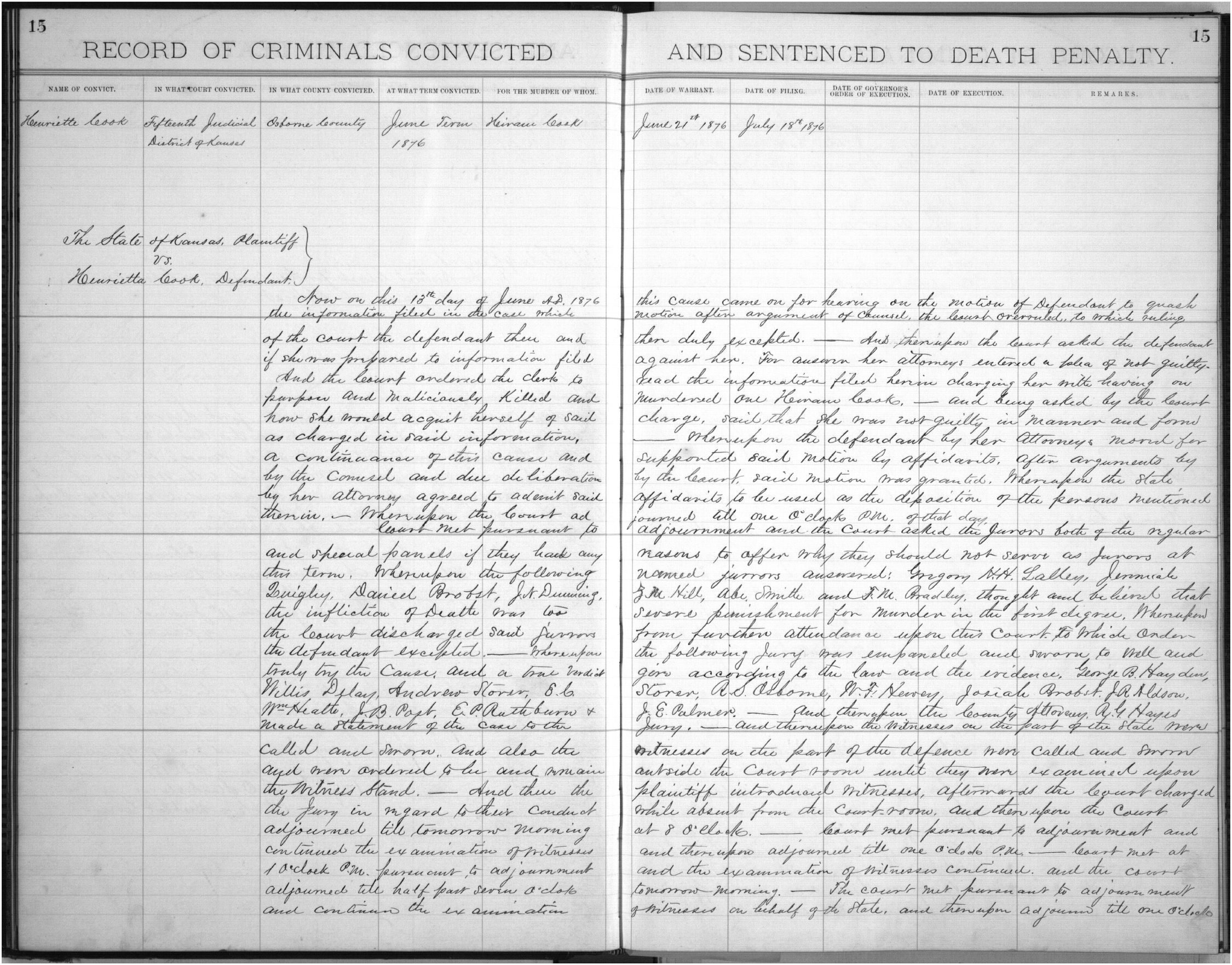 At noon on August 9, 1870, at the county jail yard in Leavenworth, the State of Kansas hanged convicted murderer William Dickson in a public execution before a large audience, including many children. State law forbid such public displays and the resulting controversy inaugurated a curious thirty-five year episode in Kansas history (1872-1907) in which death sentences were handed down but never ordered. Selected documents on capital punishment in Kansas are now available on Kansas Memory.
At noon on August 9, 1870, at the county jail yard in Leavenworth, the State of Kansas hanged convicted murderer William Dickson in a public execution before a large audience, including many children. State law forbid such public displays and the resulting controversy inaugurated a curious thirty-five year episode in Kansas history (1872-1907) in which death sentences were handed down but never ordered. Selected documents on capital punishment in Kansas are now available on Kansas Memory.
Following Dickson’s hanging, the 1871 Kansas legislature passed a bill revising the state’s punishment for murder but it failed to become law. In 1872 the legislature succeeded with Senate Bill 18 which made two major changes. It confined the convict to the state penitentiary for one year pending execution and it transferred the power to order the execution (the signing of a death warrant) from the trial judge to the governor.
 But the law did not compel the governor to sign the death warrant, and from 1872-1907 no governor ever did. From governors James Harvey (1869-1873) to Edward Hoch (1905-1909) and the eleven other governors in between (be they Republican, Democrat, or Populist) all chose not to sign death warrants. Although the courts issued many death sentences during this period, the governors’ refusal to sign the warrants effectively banned all state authorized executions.
But the law did not compel the governor to sign the death warrant, and from 1872-1907 no governor ever did. From governors James Harvey (1869-1873) to Edward Hoch (1905-1909) and the eleven other governors in between (be they Republican, Democrat, or Populist) all chose not to sign death warrants. Although the courts issued many death sentences during this period, the governors’ refusal to sign the warrants effectively banned all state authorized executions.
The law did require the Governor's Office to keep records of all death sentences and copies of all death warrants. The State Archives at the Kansas Historical Society holds these records in two bound volumes: “Death Sentence Warrants, 1872-1908” and “Record of Death Sentences, 1872-1906.” Both books were created by the Governor’s Office.
Dickson’s would be the last state-authorized execution in Kansas for more than seventy years, the next occurring in 1944 (Kansas repealed capital punishment for murder in 1907 but reinstated it in 1935). Although the state’s moratorium on legal executions lasted from 1872-1935, at least ninety illegal hangings or lynchings occurred during that period.
As Kansas continues to struggle with the question of capital punishment, the State Archives & Library at the Kansas Historical Society holds many documents demonstrating the history of the death penalty in the state. Selected documents of the principal changes and events related to capital punishment in Kansas are now available on Kansas Memory.